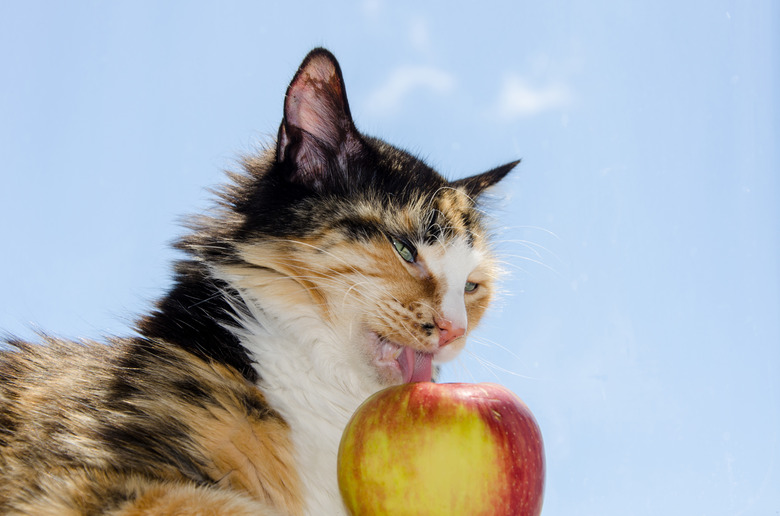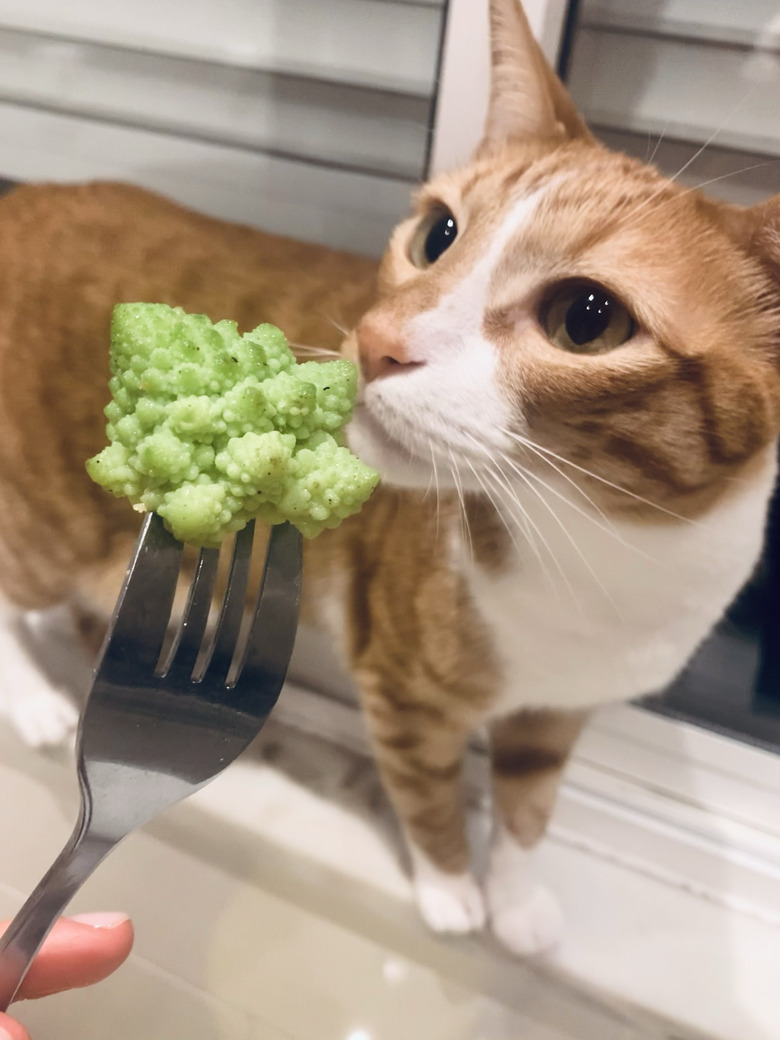Are Vegan Diets Healthy For Cats?
With more and more people choosing a vegan diet for themselves, some cat owners have wondered whether their cats could also benefit from going vegan. While it may seem logical that adding more vegetables into a diet is good for one's health, this concept does not apply to cats. Cats cannot survive on a vegan diet due to their nutritional needs.
Cats' nutritional needs
Cats' nutritional needs
All felines, from domestic cats to large wild species, are obligate carnivores — meaning they must eat meat to survive. Cats are predators by design: Their strong jaws, sharp claws, and teeth help them to hunt and kill prey. Their short, simple digestive tracts process meat very well, but they can't process plant material.
Cats have evolved to eat meat, and their bodies rely on certain nutrients that only come from animal sources. Taurine, an amino acid, is an essential part of a cat's diet and is found only in animal products. Cats need to consume a direct source of taurine, as their bodies cannot create their own. They require a high amount of protein and cannot digest carbohydrates very well.
Can cats eat fruits and vegetables?
Can cats eat fruits and vegetables?
While you've probably seen your cat munching on grass (or consuming one of your prized house plants!) cats do not need fruits or vegetables in their diets. Dogs can enjoy a wide array of vegetables, but cats and dogs have different nutritional needs — cats are carnivores, and dogs are omnivores. Dogs' digestive systems are able to process both meat and plant material, but cats can only digest meat.
There are some fruits and vegetables that are safe for cats to eat on occasion. A small amount of pureed pumpkin or banana can help with digestive issues like constipation and chronic hairballs. Leafy greens and broccoli are both safe for cats, though these should be fed sparingly — if at all. Garlic and onions are toxic to cats and should never be fed to them.
Why can't my cat be vegan?
Why can't my cat be vegan?
A lack of meat and essential nutrients in a cat's diet can lead to serious health problems. Humans are omnivores: We can digest both animal and plant material, and a vegan diet isn't harmful to us. However, cats can't digest plant material and thus can't absorb nutrients from it.
Without meat in their diets, cats can become nutritionally deficient. A deficit or lack of taurine can cause vision problems as well as a heart condition called dilated cardiomyopathy, which can be fatal in some cases. Though synthetic taurine is available as a powdered supplement, feline nutritional experts warn that cats' bodies don't process the synthetic version as effectively as absorbing taurine directly from meat. Synthetic taurine should only be used if recommended by your vet for a health condition and should be added to regular wet or dry cat food, which already contains taurine.
A vegan diet can also cause weight loss, gastrointestinal issues, and urinary tract diseases in cats. Simply put, feeding a vegan diet to a cat is like feeding a meat-based diet to a cow — their digestive system is not built to process it, and they will not thrive on it.
The best diet for cats
The best diet for cats
There are many options for pet foods that will keep your cat feeling their best. Both wet and dry cat foods contain all of the nutrients your cat needs, and most cats will thrive on a diet specific to their life stage (kitten, adult, or senior). Always consult with your vet before changing foods, as they may recommend a specific food or diet for your cat's health needs.
If you're also considering a homemade diet for your cat, talk to your vet first. A homemade diet can be an appealing option, but it can be tricky to meet your cat's nutritional needs on your own. Alternatively, you can add real meat to your cat's usual diet. Unseasoned meat that has been baked or boiled is safe for cats, but avoid feeding any meat that has been cooked in oil or butter. Cheese and other dairy products should not be fed to them, as nearly all cats are lactose intolerant.
For cat parents who are concerned about the environmental impact of using meat for pet food, consider choosing sustainable cat food. There are plenty of options for organic, humanely raised, cage-free, and hormone-free meat sources. These sustainable cat foods will ensure your cat's nutritional needs are met, and you can feel good about supporting ethical companies.
In summary
In summary
As obligate carnivores, cats' bodies are not designed to process plant material. Therefore, they need to get their nutrients from animal sources, mainly meat. Cats need plenty of protein and taurine in their diets that they cannot get from a vegan diet. Some fruits and vegetables, such as leafy greens and broccoli, are safe to feed cats — but only sparingly. Always consult with your vet about a specific food for your cat's health needs.


